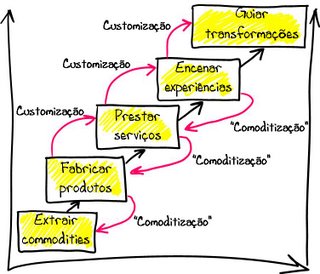Um último recorte do livro de Ko Floor, Branding a Store.
.
Desta vez sobre a batota... qual a idade média do dono de uma loja do comércio tradicional? Em que mundo foram feitas as sinapses que os ajudaram a criar e gerir as suas lojas?
.
Estamos no mesmo mundo? Não, estamos num mundo muito diferente. Estamos num mundo onde fazer batota é imperativo!
.
“For many people retailing today is not only about products, but also about experiences, recreation and having a good time.
…
… a store experience with multi-sensory appeal.
In order to experience the brand the store becomes a stage. To these brands retailing is not just selling: it is also about telling stories and providing excitement. In every store the consumer undergoes an experience, either desired or not desired.
…
In the case of an experience brand, the store becomes a place to spend leisure time instead of just shopping time. The store experience will include the entire retail offer: the merchandise, the customer service, the visual merchandising and the total store atmosphere.
All touch-points in the store are orchestrated in such a way that consumers will leave the store having had a unique experience that appealed to all their senses.…
A store experience is almost always developed by a unique mix of the range, inspiration-enhanced visual merchandising and highly motivated employees. At the centre of the experience is the merchandise. After all, a consumer visits a store to buy something. But an experience brand does more than offer a unique range. The visual merchandising and the way the employees behave are consciously used to create a differentiating store experience."
.
I love this game, orquestrar experiências em coerência com uma marca com uma personalidade... o mapa da estratégia ajuda a enquadrar os vários factores.













